Life starts all over again when it gets crisp in the fall.
F. Scott Fitzgerald
. . . And Books on the Table is starting all over again, with a brand new design that’s a little cleaner and easier on the eyes. Over the past five years, the content has changed as well. Good-bye, in-depth book reviews; hello, collections of short reviews. I’m not as concerned with reviewing brand-new books as I used to be. Just because a book has been out for a few months — or even a year — doesn’t mean it’s yesterday’s news. The frequency of posts has slowed down as well. Once a month or so seems about right. I have a long list of post ideas, and I also have a huge pile of unread books. Most of the time, I choose to pick up a book rather than write a blog post. Here are a dozen terrific books I read recently when I could have been doing other things:
Nonfiction
A book for book lovers:
 The Library Book by Susan Orlean
The Library Book by Susan Orlean
A library is a good place to soften solitude; a place where you feel part of a conversation that has gone on for hundreds and hundreds of years even when you’re all alone. The library is a whispering post. You don’t need to take a book off a shelf to know there is a voice inside that is waiting to speak to you, and behind that was someone who truly believed that if he or she spoke, someone would listen.
The Library Book is one of my favorites of 2018. At its heart is the mysterious fire at the Los Angeles Public Library in 1986 that destroyed nearly a million books, but it covers a lot of territory — the story of the accused arsonist, the history of libraries, the value of the printed page, the dedication of librarians to their work. Susan Orlean brilliantly weaves all these strands, and more, together to create a fascinating narrative that celebrates public libraries. In an interview with Publishers Weekly, she said, “There’s plenty to feel joyful about: that we still write books and read books and preserve books in places like libraries where they’re available for everyone to share.”
A must-read for parents of young children, and also anyone who’s interested in the direction of American society:
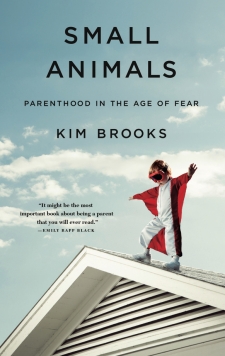 Small Animals: Parenthood in the Age of Fear by Kim Brooks
Small Animals: Parenthood in the Age of Fear by Kim Brooks
And so children do not go to the store to buy bread and milk for their parents. They do not take long walks through the woods, or ride bikes along paths, or build secret tree houses or forts while we are inside working or cooking or talking to other adults or leading our lives. They are no longer afforded, as Mona Simpson writes, “the luxury of being unnoticed, of being left alone.”
After her arrest for leaving her four-year-old in a car in a suburban parking lot for a few minutes, novelist and essayist Kim Brooks began to wonder about the origins of our culture’s misplaced and often superstitious fears. When, and why, did we become so anxious to protect our children from every possible form of danger, no matter how statistically unlikely it is to occur, and why are we so quick to blame parents — particularly mothers — when something goes wrong? This engaging and thought-provoking book — part memoir, part sociological study — will inspire lively discussion.
 A science book for nonscientists (or anyone who’s ever dreamed of a good night’s sleep):
A science book for nonscientists (or anyone who’s ever dreamed of a good night’s sleep):
Why We Sleep: Unlocking the Power of Sleep and Dreams by Matthew Walker, Ph.D.
The shorter your sleep, the shorter your life. The leading causes of disease and death in developed nations—diseases that are crippling health-care systems, such as heart disease, obesity, dementia, diabetes, and cancer—all have recognized causal links to a lack of sleep.
Neuroscientist Matthew Walker (director of the Sleep Lab at UC Berkeley) presents, in an entertaining and conversational way, all the evidence that adequate sleep, especially the REM sleep in which we dream, is essential to good health. He also outlines the methods to ensure a good night’s sleep. So why did I stay up too late reading this book? Because, since childhood, I’ve had the sleep-depriving habit of reading just one more chapter of books that capture my attention. He doesn’t mind if readers use his book as a sleep aid: “Please, feel free to ebb and flow into and out of consciousness during this entire book. I will take absolutely no offense. On the contrary, I would be delighted.”
A book that helps readers understand the causes of the opioid crisis, along with possible solutions:
 Dopesick: Dealers, Doctors, and the Drug Company That Addicted America by Beth Macy
Dopesick: Dealers, Doctors, and the Drug Company That Addicted America by Beth Macy
America’s approach to its opioid problem is to rely on Battle of Dunkirk strategies—leaving the fight to well-meaning citizens, in their fishing vessels and private boats—when what’s really needed to win the war is a full-on Normandy Invasion.
I’ve read other books that trace the roots of the opioid epidemic (Dreamland by Sam Quinones, American Pain by John Temple), but journalist Beth Macy’s harrowing narrative not only lays bare the corporate greed that has contributed to human suffering, it brings us face-to-face with the real people affected by this complicated crisis — addicts and their friends and families. As fast-paced and readable as any thriller, this book will outrage you.
Two excellent memoirs — one by an author at the end of his adult life, one by an author at the beginning of hers:
 Carnival of Losses: Notes Nearing Ninety by Donald Hall
Carnival of Losses: Notes Nearing Ninety by Donald Hall
When I was young, my language wore coats and shirts and trousers, neckties, bespoke shirts. In my lifetime as a writer I have cast off layer after layer of clothing in pursuit of nudity. I held nothing back except transitions that might once have elaborated notes into an essay. . . . As I write toward my nineties I shed my skin. I tell short anecdotes, I hazard an opinion, speculate, assume, and remember. Why should a nonagenarian hold anything back?
Poet Donald Hall died at age 89, just weeks before his last book, a series of short essays, was published. It’s a lovely parting gift from a beloved writer. In an essay called “He Holds Up a Lantern For the Rest of Us” , Ann Patchett writes: “The book is about who Don was and how he saw the world. I’m here to tell you there is nothing better. Every superfluous word is stripped away and what is left is the pure force of life.”
 All You Can Ever Know by Nicole Chung
All You Can Ever Know by Nicole Chung
By the time I was five or six years old, I had heard the tale of my loving, selfless birth parents so many times I could recite it myself. I collected every fact I could, hoarding the sparse and faded glimpses into my past like bright, favorite toys. This may be all you can ever know, I was told.
When she was expecting her first child, Nicole Chung decided to search for her birth family. What she learned shocked her and went far beyond the medical history she had hoped to find. Chung not only tells a riveting and suspenseful story, she explores transracial adoption and biological heritage.
Fiction
Two slim books with lots of “meat” for discussion:
 His Favorites by Kate Walbert
His Favorites by Kate Walbert
This is not a story I’ve told before. No one would believe me. I mean, really believe me. The would get that look and nod. They would ask certain questions that suggested I was somehow culpable or that I was making most of it up out of nothing — just girlish fantasies and daydreams.
His Favorites is a perfect addition to Short Novels Your Book Club Will Actually Finish — only 160 pages and packed with material for discussion. In the aftermath of tragedy, a teenage girl goes to boarding school and encounters a charming but predatory young teacher.
 Waiting for Eden by Elliot Ackerman
Waiting for Eden by Elliot Ackerman
My friend was, they’d been told, the most wounded man from both the wars. As advanced as medicine had become, that likely made him the most wounded man in the history of war, and they’d just kept him alive from one side of the world to the other.
Decorated veteran and National Book Award nominee Elliot Ackerman (Dark at the Crossing) has written a powerful modern-day version of Johnny Got His Gun that will break your heart. After Eden is gravely injured in Iraq, his best friend, killed in the same blast, narrates the story of Eden and his wife, Mary: “Ever since then I’ve been around too, just on that other side, seeing all there is, and waiting.”
For fans of Pat Conroy’s Southern fiction (The Prince of Tides, South of Broad) and/or Barbara Kingsolver’s eco-fiction (Prodigal Summer, Flight Behavior):
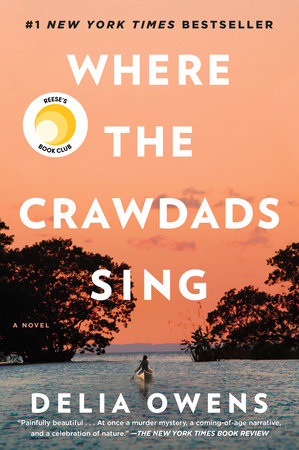 Where the Crawdads Sing by Delia Owens
Where the Crawdads Sing by Delia Owens
I wasn’t aware that words could hold so much. I didn’t know that a sentence could be so full.
I adored this novel about a young girl, abandoned by her family, who is forced to raise herself in a remote North Carolina marsh. First-time novelist Delia Owens is a wildlife scientist, and her love of the natural world shows in this beautiful and satisfying book, which combines both a coming-of-age story and a murder mystery.
A quiet, character-driven novel about family dynamics:
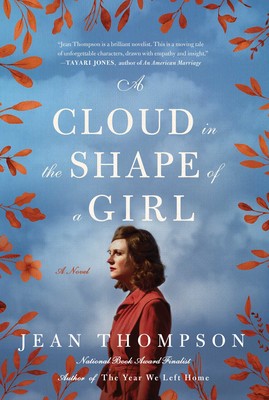 A Cloud in the Shape of a Girl by Jean Thompson
A Cloud in the Shape of a Girl by Jean Thompson
And yet history shifted underneath your feet . . . The present was a dizzy perch that every so often began to spin and slide . . . You held onto your life with both hands, you told yourself to pay attention to this moment, the here and now. But one minute passed into the next, and at some point you looked back and everything was over and people called it history.
Starting during the Second World War II and moving through succeeding generations, A Cloud in the Shape of a Girl examines the lives of three Midwestern women — grandmother, daughter, and granddaughter — as they struggle with career choices and imperfect marriages, Jean Thompson is one of many underappreciated writers who is a master at creating complex and interesting characters.
For readers who like Jodi Picoult but want something less formulaic:
 If We Had Known by Elise Juska
If We Had Known by Elise Juska
After twenty-eight years, Maggie could rely on the arc of a semester: the way, in the beginning, the freshmen would be tentative, wary, fifteen versions on insecurity — the glibness, the shyness, the overwrought machismo — was there any teenage behavior without insecurity at the root? — but as the weeks passed, they gained confidence in their work.
English professor Maggie Daley is shocked to learn that a former student was responsible for a shooting at a nearby shopping mall. Meanwhile, her college-bound daughter tries to protect her mother from dangerous secrets. After Maggie makes an error in judgment, she’s forced to examine her role in the events around her. This a thought-provoking, well-paced novel — perfect for book clubs. (Not to be confused with You Should Have Known by Jean Hanff Korelitz, another great character-oriented page-turner.)
Great historical fiction:
 Love and Ruin by Paula McLain
Love and Ruin by Paula McLain
Real writing, I was beginning to realize, was more like laying bricks than waiting for lightning to strike. It was painstaking. It was manual labor. And sometimes, sometimes if you kept putting the bricks down and let your hands just go on bleeding, and didn’t look up and didn’t stop for anything, the lightning came.
If you enjoyed The Paris Wife, about Ernest Hemingway’s first wife, you will love Love and Ruin, about his extraordinary third wife, reporter and novelist Martha Gellhorn. The pair fell in love while covering the Spanish Civil War and were married for four tumultuous years. Gellhorn, who was the only woman to land on D-Day (defying Hemingway’s wishes) was to become one of the most renowned journalists of the twentieth century, covering every major war and publishing many books. She emerges in this captivating novel as a strong, independent woman ahead of her time.
There are so many good books coming out this fall — I’m especially excited by Barbara Kingsolver’s latest (Unsheltered), Tana French’s stand-alone mystery (The Witch Elm), and Kate Atkinson’s spy novel (Transcription). How about you?



 diversion is enjoyable and therapeutic, she acknowledges (“This kind of reading is like eating chocolate in bed. I am all for it”) but reading more complex literature — books we’ll remember years from now — can enrich our spirits.
diversion is enjoyable and therapeutic, she acknowledges (“This kind of reading is like eating chocolate in bed. I am all for it”) but reading more complex literature — books we’ll remember years from now — can enrich our spirits.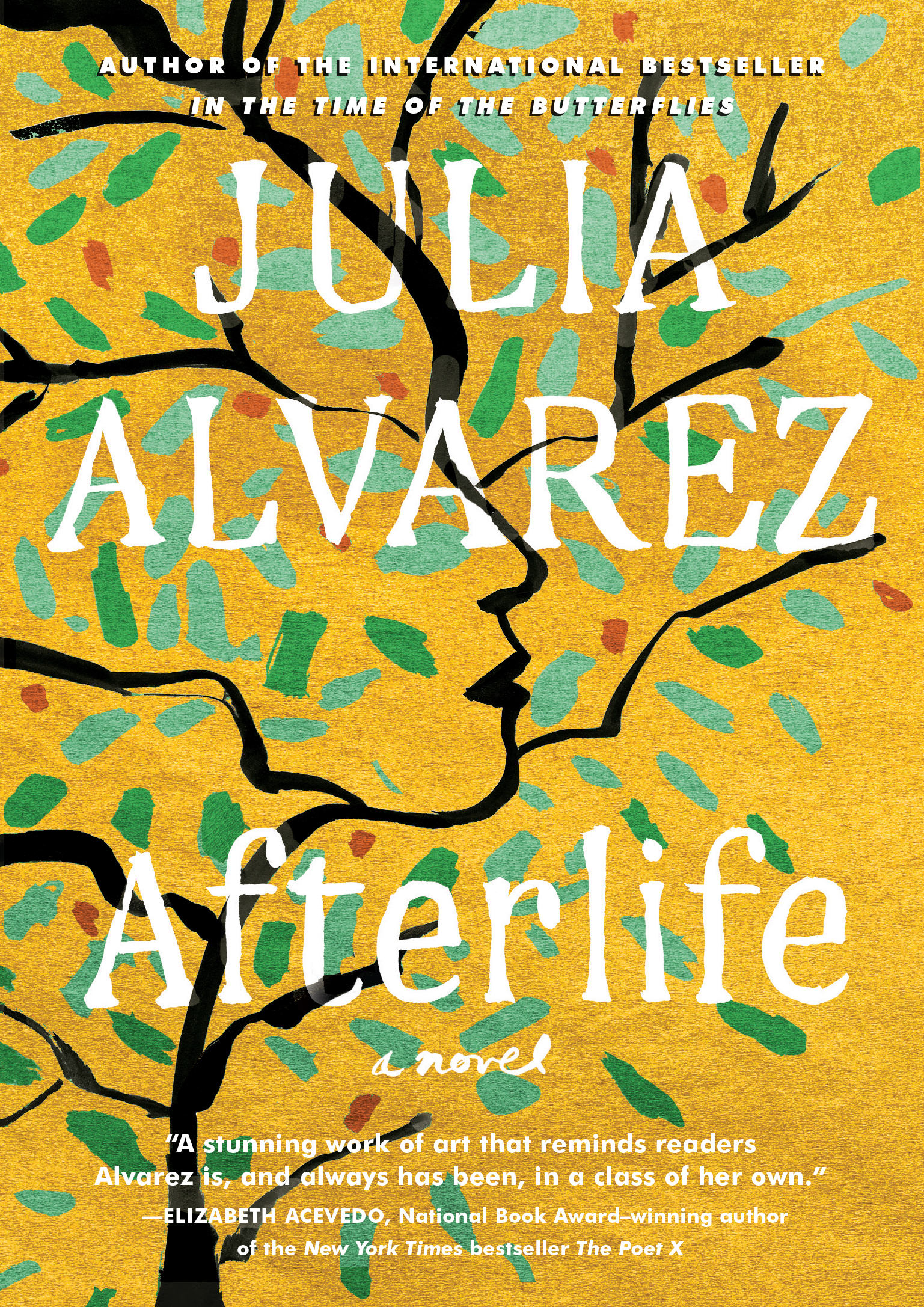 Afterlife (Julia Alvarez) — Antonia, a retired professor in Vermont, grieving after the sudden death of her husband, reluctantly offers shelter to an undocumented immigrant. Meanwhile, her mentally unbalanced sister has vanished and she and her other sisters are searching for her. I adored this story of healing, hope, and family love.
Afterlife (Julia Alvarez) — Antonia, a retired professor in Vermont, grieving after the sudden death of her husband, reluctantly offers shelter to an undocumented immigrant. Meanwhile, her mentally unbalanced sister has vanished and she and her other sisters are searching for her. I adored this story of healing, hope, and family love. The Fountains of Silence (Ruta Septys) — I absolutely loved this book, and applaud Ruta Septys for writing yet another historical novel that appeals to both teenagers and adults. She said in an interview, “I’m an author of young adult fiction that happens to appeal to adults.” I don’t know what it says about me that I thought The Fountains of Silence is the best book I’ve read about the Spanish Civil Wand its legacy. It’s long (512 pages), but I raced through it over one rainy weekend.
The Fountains of Silence (Ruta Septys) — I absolutely loved this book, and applaud Ruta Septys for writing yet another historical novel that appeals to both teenagers and adults. She said in an interview, “I’m an author of young adult fiction that happens to appeal to adults.” I don’t know what it says about me that I thought The Fountains of Silence is the best book I’ve read about the Spanish Civil Wand its legacy. It’s long (512 pages), but I raced through it over one rainy weekend. The Illness Lesson (Clare Beams) — I thought this was a pretty great book about feminism, the education of women, and sexual abuse, but it’s the kind of book that will probably be overlooked because it doesn’t fit into a tidy category. Is it historical fiction? Magical realism? Horror? The Washington Post described it as Louisa May Alcott meets Shirley Jackson. Set at an experimental school for girls in late 19th century Massachusetts where a mysterious illness is plaguing the students, the novel reminded me of Arthur Miller’s The Crucible.
The Illness Lesson (Clare Beams) — I thought this was a pretty great book about feminism, the education of women, and sexual abuse, but it’s the kind of book that will probably be overlooked because it doesn’t fit into a tidy category. Is it historical fiction? Magical realism? Horror? The Washington Post described it as Louisa May Alcott meets Shirley Jackson. Set at an experimental school for girls in late 19th century Massachusetts where a mysterious illness is plaguing the students, the novel reminded me of Arthur Miller’s The Crucible. Lost Roses (Martha Hall Kelly) — Eliza Ferriday (based on a real person and the mother of Caroline Ferriday, protagonist of Kelly’s earlier Lilac Girls) travels to St. Petersburg to visit her friend Sofya, a member of the Romanov family. But when World War I breaks out, Eliza returns to the United States, while Sofya struggles to survive in Russia. Fun, fast-paced historical fiction.
Lost Roses (Martha Hall Kelly) — Eliza Ferriday (based on a real person and the mother of Caroline Ferriday, protagonist of Kelly’s earlier Lilac Girls) travels to St. Petersburg to visit her friend Sofya, a member of the Romanov family. But when World War I breaks out, Eliza returns to the United States, while Sofya struggles to survive in Russia. Fun, fast-paced historical fiction. Valentine (Elizabeth Wetmore) — This debut novel is astonishing in many ways, but particularly in the way it brought West Texas, a place I’ve never visited, to life. The story Wetmore tells will grab you immediately: after an oil rig worker brutally attacks Gloria, a young Mexican girl, the fault lines in the community become apparent. The characters who lend their voices to the narrative are all memorable, from Mary Rose, the rancher’s wife who bravely testifies at the trial, to Corrine, the widowed teacher who befriends her, to D.A. the neglected little girl who sees more than the adults realize.
Valentine (Elizabeth Wetmore) — This debut novel is astonishing in many ways, but particularly in the way it brought West Texas, a place I’ve never visited, to life. The story Wetmore tells will grab you immediately: after an oil rig worker brutally attacks Gloria, a young Mexican girl, the fault lines in the community become apparent. The characters who lend their voices to the narrative are all memorable, from Mary Rose, the rancher’s wife who bravely testifies at the trial, to Corrine, the widowed teacher who befriends her, to D.A. the neglected little girl who sees more than the adults realize. My Wife Said You Might Want to Marry Me (Jason Rosenthal) — Unabashedly sentimental, Rosenthal’s memoir of his wife (writer Amy Krouse Rosenthal, who published a “Modern Love” essay shortly before her death about Jason, entitled “You May Want to Marry My Husband”) is a beautiful meditation on love, loss, and grief.
My Wife Said You Might Want to Marry Me (Jason Rosenthal) — Unabashedly sentimental, Rosenthal’s memoir of his wife (writer Amy Krouse Rosenthal, who published a “Modern Love” essay shortly before her death about Jason, entitled “You May Want to Marry My Husband”) is a beautiful meditation on love, loss, and grief. Like so many others, I’m having a hard time concentrating on literary novels. I started Colum McCann’s Apeirogon last week and it’s wonderful. I’m in awe of the way, in all of his novels, he takes disparate threads and weaves them into a cohesive whole. Apeirogon (which means “generalized polygon with a countably infinite number of sides — got that?) tells the story of two men, one Israeli, one Palestinian, who become friends after they each lose a daughter to senseless violence. It’s a book to savor and admire — but I keep reading a few pages and putting it down, scrolling through news stories on my phone.
Like so many others, I’m having a hard time concentrating on literary novels. I started Colum McCann’s Apeirogon last week and it’s wonderful. I’m in awe of the way, in all of his novels, he takes disparate threads and weaves them into a cohesive whole. Apeirogon (which means “generalized polygon with a countably infinite number of sides — got that?) tells the story of two men, one Israeli, one Palestinian, who become friends after they each lose a daughter to senseless violence. It’s a book to savor and admire — but I keep reading a few pages and putting it down, scrolling through news stories on my phone. Thanks to a great recommendation from my friend Di, I found a book that lured me away from the news. I flew through Nobody Will Tell You This But Me: A True (As Told to Me) Story by TV comedy writer Bess Kalb in one day. I tend to take blurbs with a grain of salt, but in this case they were accurate — the book really did make me laugh and cry. Kalb has written a poignant memoir about her late grandmother, using voicemails and emails she saved over the years to recreate the story of their relationship, written in the voice of her beloved “Bobby”. You’ll find yourself underlining your favorite parts, and there will be many.
Thanks to a great recommendation from my friend Di, I found a book that lured me away from the news. I flew through Nobody Will Tell You This But Me: A True (As Told to Me) Story by TV comedy writer Bess Kalb in one day. I tend to take blurbs with a grain of salt, but in this case they were accurate — the book really did make me laugh and cry. Kalb has written a poignant memoir about her late grandmother, using voicemails and emails she saved over the years to recreate the story of their relationship, written in the voice of her beloved “Bobby”. You’ll find yourself underlining your favorite parts, and there will be many.
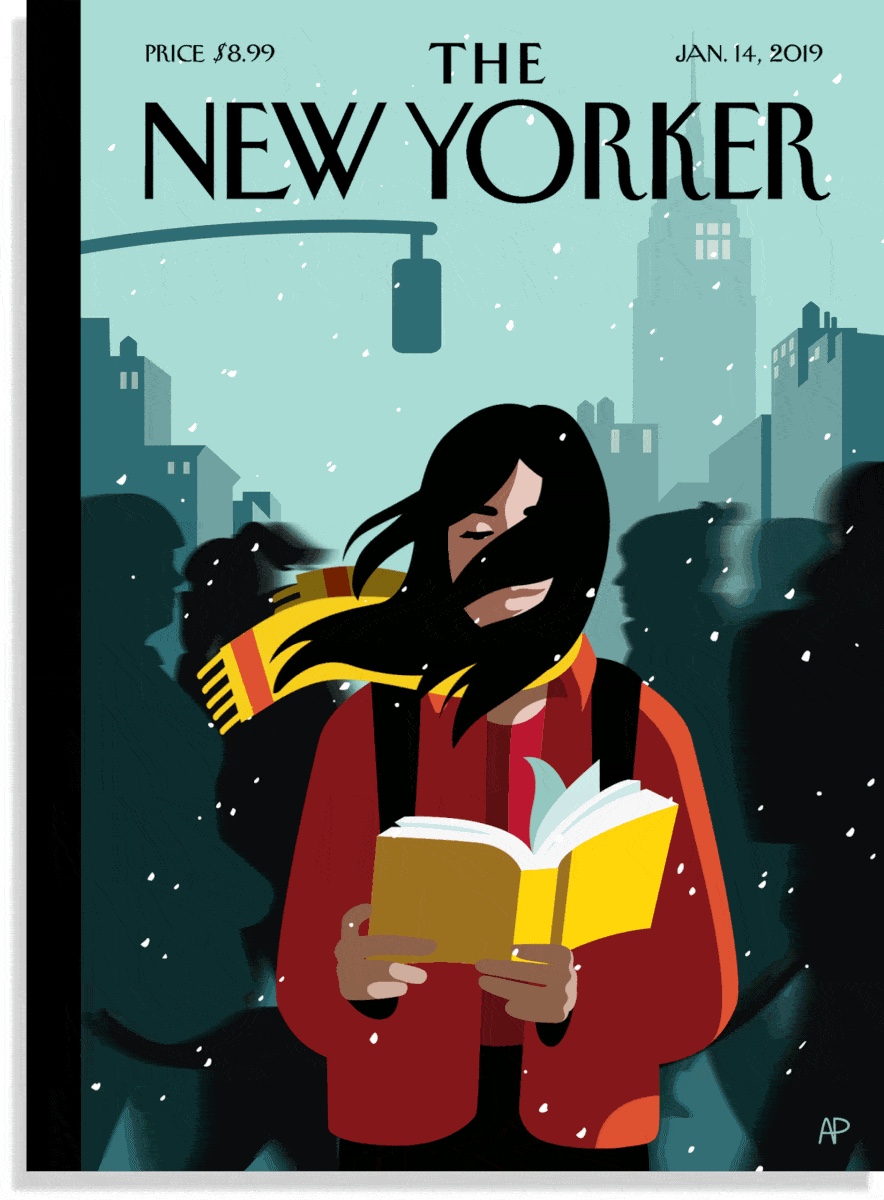 I love short stories. When my New Yorker arrives, I turn first to to the featured fiction. (Last week’s story, “Motherless Child”, by Elizabeth Strout, is wonderful — Olive Kitteridge is back!) I know not everyone shares my enthusiasm, but check out my sales pitch for short stories
I love short stories. When my New Yorker arrives, I turn first to to the featured fiction. (Last week’s story, “Motherless Child”, by Elizabeth Strout, is wonderful — Olive Kitteridge is back!) I know not everyone shares my enthusiasm, but check out my sales pitch for short stories included some suggestions at the end of this post) and maybe you’ll become a convert.
included some suggestions at the end of this post) and maybe you’ll become a convert. Here’s how it works: you settle into a comfortable seat, perhaps with a cup of coffee or tea in front of you, and listen to a professional actor read a carefully chosen, thought-provoking story. You have no idea each week what the story will be. After the reading, we’ll discuss what we just heard.
Here’s how it works: you settle into a comfortable seat, perhaps with a cup of coffee or tea in front of you, and listen to a professional actor read a carefully chosen, thought-provoking story. You have no idea each week what the story will be. After the reading, we’ll discuss what we just heard.
 The World Economic Forum recommends some pretty good books — City of Girls by Elizabeth Gilbert (#1 on the list), The Most Fun We Ever Had by Claire Lombardo, Fleishman Is In Trouble by Taffy Brodesser-Akner — as well as The Nickel Boys by Colson Whitehead (#2 on the list), probably the most acclaimed book of the summer. (I haven’t read it yet — I’m saving it for my vacation this month.)
The World Economic Forum recommends some pretty good books — City of Girls by Elizabeth Gilbert (#1 on the list), The Most Fun We Ever Had by Claire Lombardo, Fleishman Is In Trouble by Taffy Brodesser-Akner — as well as The Nickel Boys by Colson Whitehead (#2 on the list), probably the most acclaimed book of the summer. (I haven’t read it yet — I’m saving it for my vacation this month.) Ask Again, Yes (Mary Beth Keane) — I couldn’t love a book any more than I loved Ask Again, Yes. Kate Gleeson and Peter Stanhope grow up next door to each other in New York City suburb, both the children of Irish immigrants in the police force. A tragic incident divides the two families, but Kate and Peter remain friends and eventually fall in love. I don’t want to reveal any more about the plot, but I will say that this is a grace-filled story of love and forgiveness that will stay with you.
Ask Again, Yes (Mary Beth Keane) — I couldn’t love a book any more than I loved Ask Again, Yes. Kate Gleeson and Peter Stanhope grow up next door to each other in New York City suburb, both the children of Irish immigrants in the police force. A tragic incident divides the two families, but Kate and Peter remain friends and eventually fall in love. I don’t want to reveal any more about the plot, but I will say that this is a grace-filled story of love and forgiveness that will stay with you.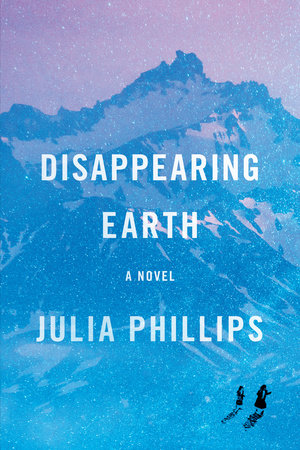 Disappearing Earth (Julia Phillips) — “This should win the Pulitzer!” a friend exclaimed at a recent book club meeting. I agree — Disappearing Earth is definitely prize-worthy. Set in Kamchatka, a peninsula in northeastern Russia, this highly original and beautifully written novel explores the lives of girls and women, both “native” and Russian, in this remote and tension-filled area. Each chapter is a short story, introducing new characters, but is also a piece of a puzzle. What happened to the young girls who disappeared in the opening pages? You won’t be able to put the book down until the final chapter. Maybe this is a stretch, but it reminded me of The Girl With the Dragon Tattoo — without all the confusing parts.
Disappearing Earth (Julia Phillips) — “This should win the Pulitzer!” a friend exclaimed at a recent book club meeting. I agree — Disappearing Earth is definitely prize-worthy. Set in Kamchatka, a peninsula in northeastern Russia, this highly original and beautifully written novel explores the lives of girls and women, both “native” and Russian, in this remote and tension-filled area. Each chapter is a short story, introducing new characters, but is also a piece of a puzzle. What happened to the young girls who disappeared in the opening pages? You won’t be able to put the book down until the final chapter. Maybe this is a stretch, but it reminded me of The Girl With the Dragon Tattoo — without all the confusing parts. Miracle Creek
Miracle Creek Rules for Visiting (Jessica Francis Kane) — May Attaway is a forty-year-old single woman, working as a gardener at a university and living with her eighty-year-old father. When a professor wins a prize for writing a poem about a tree that May planted, the university rewards her with thirty days of paid leave. Realizing she’s neglected her friendships, May leaves her comfort zone and reconnects with four old friends. This is a lovely jewel of a book, filled with warmth and wit, that will remind you of the importance of friends, good books — and plants.
Rules for Visiting (Jessica Francis Kane) — May Attaway is a forty-year-old single woman, working as a gardener at a university and living with her eighty-year-old father. When a professor wins a prize for writing a poem about a tree that May planted, the university rewards her with thirty days of paid leave. Realizing she’s neglected her friendships, May leaves her comfort zone and reconnects with four old friends. This is a lovely jewel of a book, filled with warmth and wit, that will remind you of the importance of friends, good books — and plants.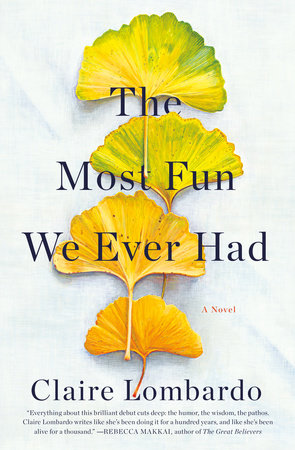 The Most Fun We Ever Had (Claire Lombardo) — If you like dysfunctional family dramas (and I do!), this is for you. It’s one of the best of its kind. Marilyn and David, married (mostly happily) for forty years, have raised four very different adult daughters. Their world is rocked when a teenage grandson, given up for adoption, enters their lives. Chicagoans, take note: this absorbing novel is set in our city and the suburbs.
The Most Fun We Ever Had (Claire Lombardo) — If you like dysfunctional family dramas (and I do!), this is for you. It’s one of the best of its kind. Marilyn and David, married (mostly happily) for forty years, have raised four very different adult daughters. Their world is rocked when a teenage grandson, given up for adoption, enters their lives. Chicagoans, take note: this absorbing novel is set in our city and the suburbs. City of Girls (Elizabeth Gilbert) — Maybe you loved Elizabeth Gilbert’s bestselling memoir, Eat Pray Love; maybe you hated it. It doesn’t matter, because you would never guess they’re written by the same author. I suppose you could say they both focus on the same theme — the freedom of women to live as they choose — but the style and tone couldn’t be more different. City of Girls covers seventy years in the life of Vivian Morris, who comes to New York as a naive college dropout in 1940 and becomes a successful costume designer as well as a sexual adventurer. What I enjoyed most about this fun book was the dialogue (plenty of witty repartee), the eccentric characters, the clothes, and Vivian’s unexpected friendship with a damaged veteran.
City of Girls (Elizabeth Gilbert) — Maybe you loved Elizabeth Gilbert’s bestselling memoir, Eat Pray Love; maybe you hated it. It doesn’t matter, because you would never guess they’re written by the same author. I suppose you could say they both focus on the same theme — the freedom of women to live as they choose — but the style and tone couldn’t be more different. City of Girls covers seventy years in the life of Vivian Morris, who comes to New York as a naive college dropout in 1940 and becomes a successful costume designer as well as a sexual adventurer. What I enjoyed most about this fun book was the dialogue (plenty of witty repartee), the eccentric characters, the clothes, and Vivian’s unexpected friendship with a damaged veteran. Fleishman Is in Trouble (Taffy Brodesser-Akner) — Recently separated from his workaholic wife, Rachel, Toby Fleishman is enjoying a robust social life when Rachel vanishes, leaving him with their two children. This clever and insightful debut novel both satirizes and scrutinizes contemporary marriage. It bogged down for me a bit in the middle — I got tired of Toby’s exploits in the world of dating apps — but ultimately redeemed itself with a satisfying, and unexpected, ending. Reviewers have compared this book to Where’d You Go, Bernadette?, and I can see why.
Fleishman Is in Trouble (Taffy Brodesser-Akner) — Recently separated from his workaholic wife, Rachel, Toby Fleishman is enjoying a robust social life when Rachel vanishes, leaving him with their two children. This clever and insightful debut novel both satirizes and scrutinizes contemporary marriage. It bogged down for me a bit in the middle — I got tired of Toby’s exploits in the world of dating apps — but ultimately redeemed itself with a satisfying, and unexpected, ending. Reviewers have compared this book to Where’d You Go, Bernadette?, and I can see why. I don’t think authors need me to criticize them. I assume that by the time their books are published, they’ve received a lifetime’s worth of criticism, from professors, classmates, editors, and “sensitivity readers”. Lorentzen’s basic point, which is that both readers and writers deserve “painstaking appraisals” of serious books is a good one. I agree with him that much of what now passes as literary journalism is lightweight — for example, lists of “reading recommendations” with blurbs lifted from jacket copy, Instagram photos of celebrities with books as props, and five-minute TV interviews in which it’s obvious that interviewer hasn’t read the author’s book. But if a photo of Reese Witherspoon reading The Library Book inspires her fans to read Susan Orlean’s fascinating narrative about public libraries and their place in our society, what’s wrong with that?
I don’t think authors need me to criticize them. I assume that by the time their books are published, they’ve received a lifetime’s worth of criticism, from professors, classmates, editors, and “sensitivity readers”. Lorentzen’s basic point, which is that both readers and writers deserve “painstaking appraisals” of serious books is a good one. I agree with him that much of what now passes as literary journalism is lightweight — for example, lists of “reading recommendations” with blurbs lifted from jacket copy, Instagram photos of celebrities with books as props, and five-minute TV interviews in which it’s obvious that interviewer hasn’t read the author’s book. But if a photo of Reese Witherspoon reading The Library Book inspires her fans to read Susan Orlean’s fascinating narrative about public libraries and their place in our society, what’s wrong with that? Objecting to what he calls “a consumerist vision of reading”, Lorentzen says, “I’m skeptical of the popular and the commercial.” Yes, bestselling books can be poorly written and formulaic, but so are many “literary” books. It seems almost too obvious to state that many bestsellers are popular for a very good reason — they’re terrific books by any standard. For example, the current New York Times bestseller list includes Circe by Madeline Miller, A Gentleman in Moscow by Amor Towles, and Being Mortal by Atul Gawande — books beloved by both critics and ordinary readers.
Objecting to what he calls “a consumerist vision of reading”, Lorentzen says, “I’m skeptical of the popular and the commercial.” Yes, bestselling books can be poorly written and formulaic, but so are many “literary” books. It seems almost too obvious to state that many bestsellers are popular for a very good reason — they’re terrific books by any standard. For example, the current New York Times bestseller list includes Circe by Madeline Miller, A Gentleman in Moscow by Amor Towles, and Being Mortal by Atul Gawande — books beloved by both critics and ordinary readers. The Island of Sea Women by Lisa See
The Island of Sea Women by Lisa See Maybe You Should Talk to Someone: A Therapist, Her Therapist, and Our Lives Revealed by Lori Gottlieb
Maybe You Should Talk to Someone: A Therapist, Her Therapist, and Our Lives Revealed by Lori Gottlieb The Storm on Our Shores: One Island, Two Soldiers, and the Forgotten Battle of World War II by Mark Obmascik
The Storm on Our Shores: One Island, Two Soldiers, and the Forgotten Battle of World War II by Mark Obmascik
 Southern Lady Code by Helen Ellis
Southern Lady Code by Helen Ellis Nanaville: Adventures in Grandparenting by Anna Quindlen
Nanaville: Adventures in Grandparenting by Anna Quindlen According to multiple Internet sources, Frank Zappa came up with the saying, “So many books, so little time.” Well, it turns out that Zappa didn’t coin this phrase; it comes from a pamphlet called So Many Books, So Little Time, What to Do? published in 1892 by a British organization called the National Home Reading Union that aimed to guide middle-class and working-class citizens in their “reading practices and choices.” Frank Zappa did say some other smart things, such as “Communism doesn’t work because people like to own stuff” and “A mind is like a parachute. It doesn’t work if it is not open.” He also said, “Drop out of school before your mind rots from exposure to our mediocre educational system. Forget about the Senior Prom and go to the library and educate yourself if you’ve got any guts” and “Tobacco is my favorite vegetable” Well, keep in mind this is a person who named his children Moon Unit and Dweezil.
According to multiple Internet sources, Frank Zappa came up with the saying, “So many books, so little time.” Well, it turns out that Zappa didn’t coin this phrase; it comes from a pamphlet called So Many Books, So Little Time, What to Do? published in 1892 by a British organization called the National Home Reading Union that aimed to guide middle-class and working-class citizens in their “reading practices and choices.” Frank Zappa did say some other smart things, such as “Communism doesn’t work because people like to own stuff” and “A mind is like a parachute. It doesn’t work if it is not open.” He also said, “Drop out of school before your mind rots from exposure to our mediocre educational system. Forget about the Senior Prom and go to the library and educate yourself if you’ve got any guts” and “Tobacco is my favorite vegetable” Well, keep in mind this is a person who named his children Moon Unit and Dweezil. The Honey Bus: A Memoir of Loss, Courage and A Girl Saved by Bees by Meredith May
The Honey Bus: A Memoir of Loss, Courage and A Girl Saved by Bees by Meredith May Save Me the Plums: My Gourmet Memoir by Ruth Reichl
Save Me the Plums: My Gourmet Memoir by Ruth Reichl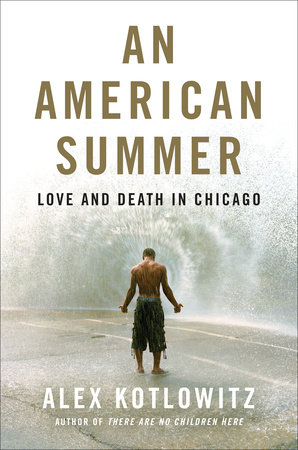 An American Summer: Love and Death in Chicago by Alex Kotlowitz
An American Summer: Love and Death in Chicago by Alex Kotlowitz Henry, Himself by Stewart O’Nan
Henry, Himself by Stewart O’Nan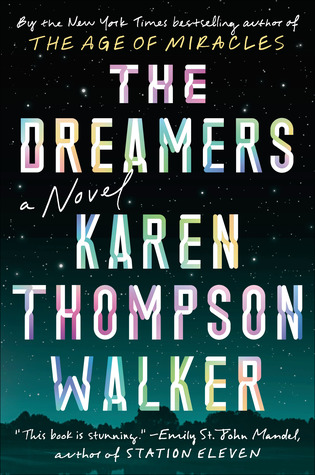 The Dreamers by Karen Thompson Walker
The Dreamers by Karen Thompson Walker The Huntress by Kate Quinn
The Huntress by Kate Quinn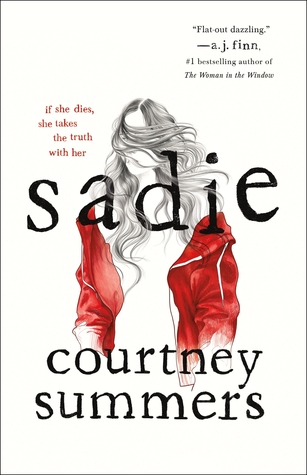 Sadie by Courtney Summers
Sadie by Courtney Summers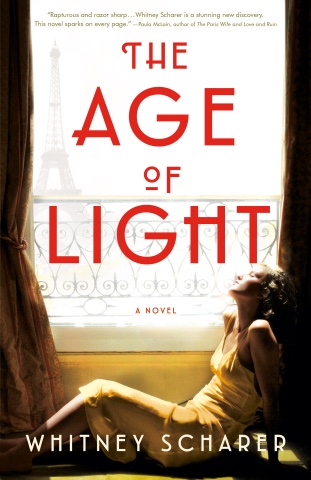 The Age of Light by Whitney Scharer
The Age of Light by Whitney Scharer The River by Peter Heller
The River by Peter Heller Little Faith by Nickolas Butler
Little Faith by Nickolas Butler A list of books with “winter” in the title would be fun — The Dakota Winters, by Tom Barbash , is a brand-new and absorbing novel about growing up in the famous Dakota apartment building in New York, with John Lennon as a neighbor, and The Winter Soldier, by Daniel Mason, is terrific historical fiction about an Austrian medical student sent to a remote field hospital during World War I. And how about Isabel Allende’s In the Midst of Winter, a beautiful novel about three characters whose lives collide during a Brooklyn blizzard, and Robin Oliveira’s Winter Sisters, a page-turner set in 19th century Albany, New York that features a former Civil War surgeon, Mary Sutter (last seen in My Name is Mary Sutter)? My favorite “winter” novel has to be The Long Winter, which I think is the best of Laura Ingalls Wilder’s Little House series.
A list of books with “winter” in the title would be fun — The Dakota Winters, by Tom Barbash , is a brand-new and absorbing novel about growing up in the famous Dakota apartment building in New York, with John Lennon as a neighbor, and The Winter Soldier, by Daniel Mason, is terrific historical fiction about an Austrian medical student sent to a remote field hospital during World War I. And how about Isabel Allende’s In the Midst of Winter, a beautiful novel about three characters whose lives collide during a Brooklyn blizzard, and Robin Oliveira’s Winter Sisters, a page-turner set in 19th century Albany, New York that features a former Civil War surgeon, Mary Sutter (last seen in My Name is Mary Sutter)? My favorite “winter” novel has to be The Long Winter, which I think is the best of Laura Ingalls Wilder’s Little House series. I really love books about whaling. I’m one of those rare readers who not only enjoyed Moby Dick but didn’t skip the long passages about whaling techniques. Nathaniel Philbrick’s In the Heart of the Sea, narrative nonfiction about shipwrecked whalers, is one of my favorite books. I’m also fascinated with indigenous people who live in remote areas, so The Last Whalers: Three Years in the Far Pacific With a Courageous Tribe and a Vanishing Way of Life, by Doug Bock Clark, hit my sweet spot. I think anyone who enjoys excellent narrative nonfiction will find this book fascinating, and hard to put down. The New York Times review says, it “has the texture and coloring of a first-rate novel”, and I agree.
I really love books about whaling. I’m one of those rare readers who not only enjoyed Moby Dick but didn’t skip the long passages about whaling techniques. Nathaniel Philbrick’s In the Heart of the Sea, narrative nonfiction about shipwrecked whalers, is one of my favorite books. I’m also fascinated with indigenous people who live in remote areas, so The Last Whalers: Three Years in the Far Pacific With a Courageous Tribe and a Vanishing Way of Life, by Doug Bock Clark, hit my sweet spot. I think anyone who enjoys excellent narrative nonfiction will find this book fascinating, and hard to put down. The New York Times review says, it “has the texture and coloring of a first-rate novel”, and I agree. When a lot of people whose opinions you respect keep telling you to read a book, you should listen to them. For some reason, I was dubious about Elena Ferrante’s acclaimed Neapolitan Novels, but after watching My Brilliant Friend on HBO, I decided to give the series another try — and now I’m hooked. I wish someone had told me that these books are an Italian version of A Tree Grows in Brooklyn — but even better, because the story just keeps going.
When a lot of people whose opinions you respect keep telling you to read a book, you should listen to them. For some reason, I was dubious about Elena Ferrante’s acclaimed Neapolitan Novels, but after watching My Brilliant Friend on HBO, I decided to give the series another try — and now I’m hooked. I wish someone had told me that these books are an Italian version of A Tree Grows in Brooklyn — but even better, because the story just keeps going. For some memoir authors, one book isn’t enough. An article about the increasing number of “serial memoirists” explores this phenomenon:
For some memoir authors, one book isn’t enough. An article about the increasing number of “serial memoirists” explores this phenomenon:  Bill Bryson, watch out — Jennifer Traig is encroaching on your territory. In Act Natural: A Cultural History of Misadventures in Parenting, she delves deep into the history of Western child-rearing, starting with ancient Rome, juxtaposing detailed research with scathing wit. In order to keep their babies from stumbling into “bubbling pots of gruel”, medieval parents swaddled their babies tightly and hung them from hooks on the hall, “like purses on a bathroom stall.”
Bill Bryson, watch out — Jennifer Traig is encroaching on your territory. In Act Natural: A Cultural History of Misadventures in Parenting, she delves deep into the history of Western child-rearing, starting with ancient Rome, juxtaposing detailed research with scathing wit. In order to keep their babies from stumbling into “bubbling pots of gruel”, medieval parents swaddled their babies tightly and hung them from hooks on the hall, “like purses on a bathroom stall.” I can never resist a book about books, especially one about children’s books, so I couldn’t wait to read The Enchanted Hour: The Miraculous Power of Reading Aloud in the Age of Distraction, by Meghan Cox Gurdon, the children’s book critic for the Wall Street Journal. (Doesn’t that sound like a dream job?) She shares fascinating data from the Reading and Literacy Discovery Center at Cincinnati Children’s Hospital, among other research centers, that prove what “we enthusiasts have long suspected is true: reading aloud really is a kind of magic elixir.”
I can never resist a book about books, especially one about children’s books, so I couldn’t wait to read The Enchanted Hour: The Miraculous Power of Reading Aloud in the Age of Distraction, by Meghan Cox Gurdon, the children’s book critic for the Wall Street Journal. (Doesn’t that sound like a dream job?) She shares fascinating data from the Reading and Literacy Discovery Center at Cincinnati Children’s Hospital, among other research centers, that prove what “we enthusiasts have long suspected is true: reading aloud really is a kind of magic elixir.” I am such a word nerd that I actually enjoy reading books about grammar and vocabulary. I don’t know how many people like me exist, but there must be enough of us to justify publishing these books. How to Tell Fate From Destiny: And Other Skillful Word Distinctions by Charles Harrington Elster and Dreyer’s English: An Utterly Correct Guide to Clarity and Style by Benjamin Dreyer (copy chief of Random House). If you were the kind of kid who liked to read the dictionary, you’ll enjoy both of these books, which are both full of humor as well as useful information.
I am such a word nerd that I actually enjoy reading books about grammar and vocabulary. I don’t know how many people like me exist, but there must be enough of us to justify publishing these books. How to Tell Fate From Destiny: And Other Skillful Word Distinctions by Charles Harrington Elster and Dreyer’s English: An Utterly Correct Guide to Clarity and Style by Benjamin Dreyer (copy chief of Random House). If you were the kind of kid who liked to read the dictionary, you’ll enjoy both of these books, which are both full of humor as well as useful information. You might think a certain category of book is not for you, but then you read one and change your mind. I didn’t think I would like a graphic memoir, but I absolutely adored Hey, Kiddo: How I Lost My Mother, Found My Father, and Dealt With Family Addiction, by Jarrett J. Krosoczka. It’s unlike anything I’ve read before, and humanizes the opioid crisis in way no other book I’ve read on the subject has been able to do.
You might think a certain category of book is not for you, but then you read one and change your mind. I didn’t think I would like a graphic memoir, but I absolutely adored Hey, Kiddo: How I Lost My Mother, Found My Father, and Dealt With Family Addiction, by Jarrett J. Krosoczka. It’s unlike anything I’ve read before, and humanizes the opioid crisis in way no other book I’ve read on the subject has been able to do. The Library Book by Susan Orlean
The Library Book by Susan Orlean Small Animals: Parenthood in the Age of Fear by Kim Brooks
Small Animals: Parenthood in the Age of Fear by Kim Brooks A science book for nonscientists (or anyone who’s ever dreamed of a good night’s sleep):
A science book for nonscientists (or anyone who’s ever dreamed of a good night’s sleep): Dopesick: Dealers, Doctors, and the Drug Company That Addicted America by Beth Macy
Dopesick: Dealers, Doctors, and the Drug Company That Addicted America by Beth Macy Carnival of Losses: Notes Nearing Ninety by Donald Hall
Carnival of Losses: Notes Nearing Ninety by Donald Hall All You Can Ever Know by Nicole Chung
All You Can Ever Know by Nicole Chung His Favorites by Kate Walbert
His Favorites by Kate Walbert Waiting for Eden by Elliot Ackerman
Waiting for Eden by Elliot Ackerman Where the Crawdads Sing by Delia Owens
Where the Crawdads Sing by Delia Owens A Cloud in the Shape of a Girl by Jean Thompson
A Cloud in the Shape of a Girl by Jean Thompson If We Had Known by Elise Juska
If We Had Known by Elise Juska Love and Ruin by Paula McLain
Love and Ruin by Paula McLain